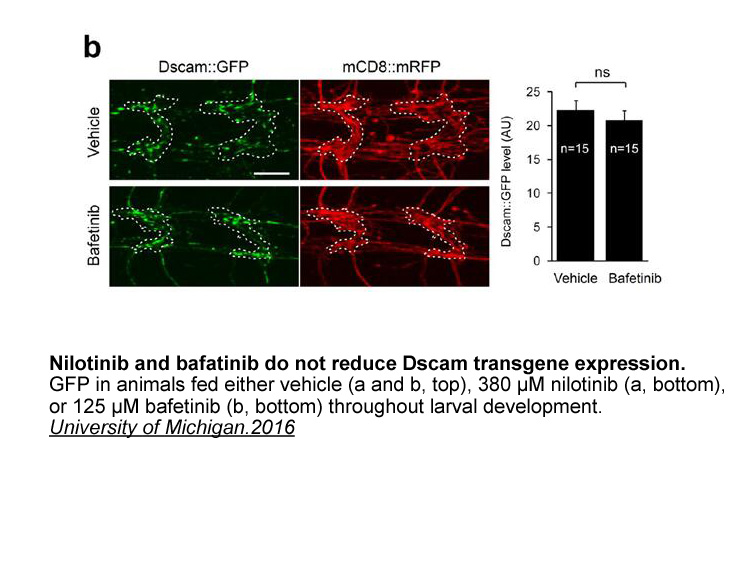Archives
br Cancer prevention and anti tumor effects
Cancer prevention and anti-tumor effects of black tea
Cancer is the most common cause of human mortality worldwide. Cancer cells are capable of limitless replication potential due to their self-sufficient growth signals and their resistant to anti-growth signals from host defense that enable them to evade apoptosis. Furthermore, they can sustain angiogenesis that can lead to tissue invasion and metastasis [2]. Targeting the regulation of key molecules and cellular signaling pathways in tumorigenesis by natural products was effective in preventing or reducing risk of cancer [3]. There are many reports on the efficacy of the anti-tumor and cancer prevention activity of black tea. For instance, studies from Baker et al. [4] and Doral et al. [5] support the cancer chemo-preventive effect of black tea in the development of prostate cancer, ovarian cancer and rectal cancer. However, others [6,7] do not. The discrepancy of the effects could be a result of actual dosage differences among studies with unspecified  amount ingestion of bioactive tea polyphenols. Daily consumption of black tea in women lowered the concentration of 17β-estradiol (E2), which may reduce hormone-related cancer risk [8] (Table 3). Regular black tea consumption is also associated with the reduced risk of ovarian and Senexin B cancer in female subjects [9–11]. Furthermore, several research groups have attempted to elucidate the molecular mechanisms of black tea and its polyphenols.
Drinking black tea reduced incidence and number of skin papilloma in 7,12-dimethylbenz[a]anthracene (DMBA)-treated mice through activation of detoxification enzymes and decreased lipid peroxidation [12]. Oral administration of black tea polyphenols delayed tumorigenesis, reduced tumor number and volume in DMBA-induced mouse skin carcinogenesis through induction of apoptosis in tumor cells [13]. Topical application of combined black tea polyphenols and resveratrol synergistically inhibited DMBA/TPA-induced skin carcinogenesis by reducing tumor incidence, number and volume. Mechanistic study showed that this combination down-regulated mitogen-activated protein kinases (MAPKs) and increased tumor suppressor gene p53 and apoptosis [14]. Consistent with the results in skin cancer model, oral intake of black tea polyphenols or extract also suppressed DMBA-induced mammary tumors and oral tumors by scavenging reactive oxygen species (ROS) that reduced the oxidative stress [15] and down-regulating cyclyoxygenase-2 (COX-2), nuclear factor kappa-B (NF-κB) and protein kinase B (Akt) [15], and interfering with the activity of carcinogen metabolizing enzymes [16].
In DMH (1,2-dimethylhydrazine)-induced colorectal tumor model, consumption of tea with high content polymeric black tea polyphenols inhibited the tumorigenesis via down-regulation of Wnt/β-catenin pathway and proliferative gene expression [17]. Oral administration of black tea polyphenols was also effective against arsenic-induced formation of 8-hydroxy-2′-deoxyguanosine (8-OHdG) through up-regulation of DNA repair enzymes in Swiss albino mice [18].
One common feature in the effects of black tea in antagonizing various chemical-induced carcinogenesis is the activation of the detoxification enzymes. The detoxifying enzyme system plays an important role in determin
amount ingestion of bioactive tea polyphenols. Daily consumption of black tea in women lowered the concentration of 17β-estradiol (E2), which may reduce hormone-related cancer risk [8] (Table 3). Regular black tea consumption is also associated with the reduced risk of ovarian and Senexin B cancer in female subjects [9–11]. Furthermore, several research groups have attempted to elucidate the molecular mechanisms of black tea and its polyphenols.
Drinking black tea reduced incidence and number of skin papilloma in 7,12-dimethylbenz[a]anthracene (DMBA)-treated mice through activation of detoxification enzymes and decreased lipid peroxidation [12]. Oral administration of black tea polyphenols delayed tumorigenesis, reduced tumor number and volume in DMBA-induced mouse skin carcinogenesis through induction of apoptosis in tumor cells [13]. Topical application of combined black tea polyphenols and resveratrol synergistically inhibited DMBA/TPA-induced skin carcinogenesis by reducing tumor incidence, number and volume. Mechanistic study showed that this combination down-regulated mitogen-activated protein kinases (MAPKs) and increased tumor suppressor gene p53 and apoptosis [14]. Consistent with the results in skin cancer model, oral intake of black tea polyphenols or extract also suppressed DMBA-induced mammary tumors and oral tumors by scavenging reactive oxygen species (ROS) that reduced the oxidative stress [15] and down-regulating cyclyoxygenase-2 (COX-2), nuclear factor kappa-B (NF-κB) and protein kinase B (Akt) [15], and interfering with the activity of carcinogen metabolizing enzymes [16].
In DMH (1,2-dimethylhydrazine)-induced colorectal tumor model, consumption of tea with high content polymeric black tea polyphenols inhibited the tumorigenesis via down-regulation of Wnt/β-catenin pathway and proliferative gene expression [17]. Oral administration of black tea polyphenols was also effective against arsenic-induced formation of 8-hydroxy-2′-deoxyguanosine (8-OHdG) through up-regulation of DNA repair enzymes in Swiss albino mice [18].
One common feature in the effects of black tea in antagonizing various chemical-induced carcinogenesis is the activation of the detoxification enzymes. The detoxifying enzyme system plays an important role in determin ing the final fate of carcinogens/procarcinogens and their subsequent impact on carcinogenesis [19]. Regulation of many detoxifying enzymes is mediated by the transcription factor nuclear factor E2-related factor 2 (Nrf2) that binds to the antioxidant response element (ARE)/electrophile response element (EpRE), which is located in the promoter region of related genes to initiate gene expression. Ingredients in black tea including EGCG activate Nrf2 and up-regulate the protective enzymes [19,20]. In addition to Nrf2 activation, there are many other important mechanisms that contribute to the anti-carcinogenic effects by black tea polyphenols.
ing the final fate of carcinogens/procarcinogens and their subsequent impact on carcinogenesis [19]. Regulation of many detoxifying enzymes is mediated by the transcription factor nuclear factor E2-related factor 2 (Nrf2) that binds to the antioxidant response element (ARE)/electrophile response element (EpRE), which is located in the promoter region of related genes to initiate gene expression. Ingredients in black tea including EGCG activate Nrf2 and up-regulate the protective enzymes [19,20]. In addition to Nrf2 activation, there are many other important mechanisms that contribute to the anti-carcinogenic effects by black tea polyphenols.